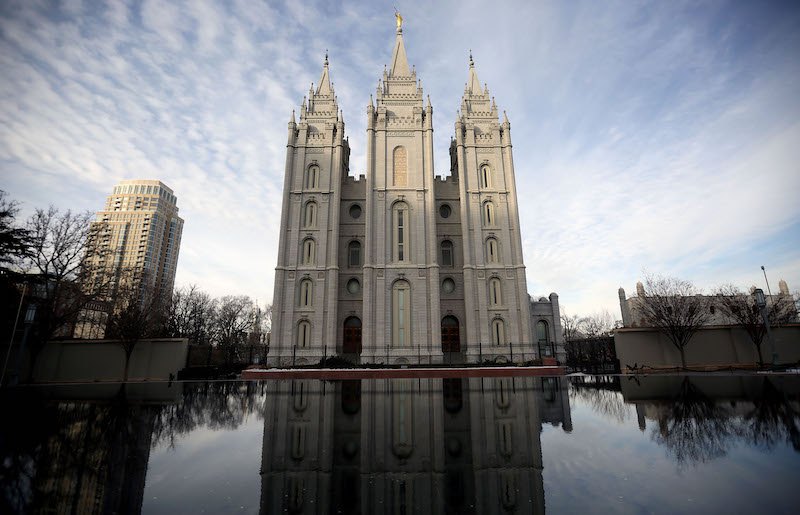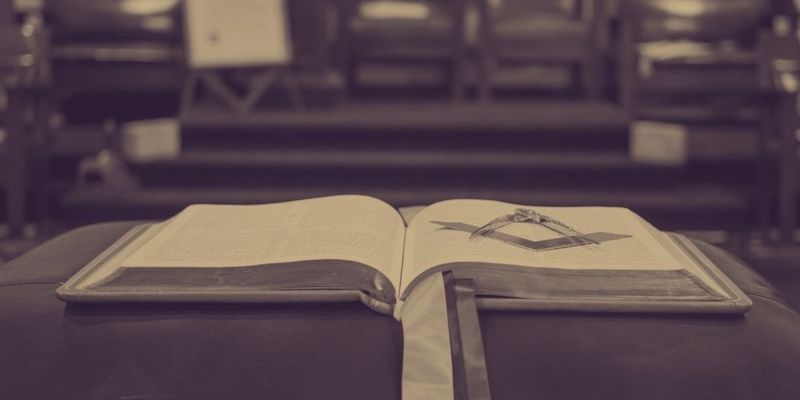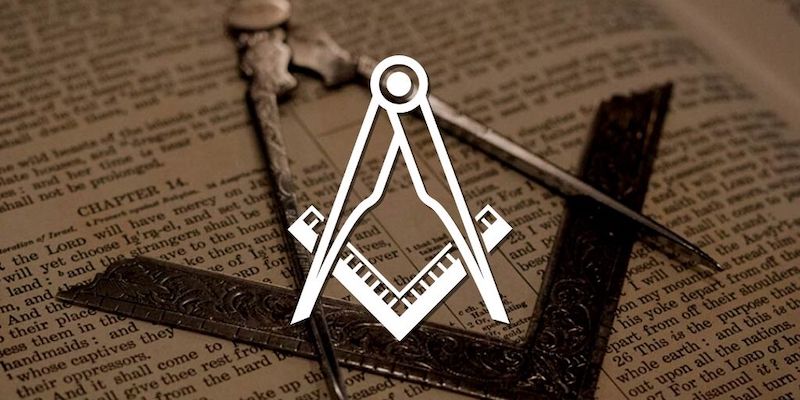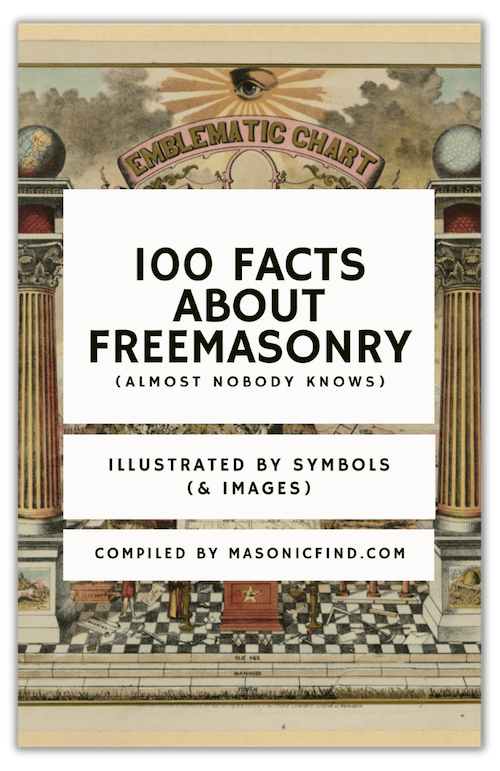Some ask the question about whether members of The Church of Jesus Christ of Latter-day Saints (Mormons) can become Freemasons.
Having firsthand knowledge and experience both as a Latter-day Saint and as a Freemason, I feel uniquely qualified to answer this question.
So, can Latter-day Saints become Masons?
The short, uncomplicated answer is “generally yes.” To delve further into this question, we must look at both the Church’s policy as well as the stances held by the various Masonic grand lodge jurisdictions around the world.

The Church
The Church does not have a policy that prohibits its members from being Freemasons.
Historically, some of the Church’s general authorities cautioned against joining oath-bound groups that would distract from one’s ecclesiastical duties. However, such cautions never equated to the prohibition for members against becoming Freemasons.
Many members of the Church will opine differently given the common misunderstanding that Freemasonry is a secret combination.
For those who are not members of the Church, it defines secret combination as “an organization of people bound together by oaths to carry out the evil purposes of the group” (source: Guide to the Scriptures).
Freemasonry does not have any evil purposes; it, therefore, cannot at all qualify as a secret combination by the Church’s definition.
According to a recent video by the Church, members may become Freemasons (source: Joseph Smith and Masonry | Now You Know).
Regular Freemasonry

In the world of Freemasonry, regular refers to any Masonic organization that adheres to the Ancient Landmarks.
Each grand lodge jurisdiction operates independently and can therefore choose what other grand lodge jurisdictions it will recognize.
Recognition between grand lodge jurisdictions allows for intervisitation of Masons between the recognized jurisdictions; a Mason may also speak privately regarding the secrets of Freemasonry with another Mason from a recognized jurisdiction.
Regular Freemasonry is a brotherhood; as such, only men are permitted to join. Female members of the Church cannot therefore be Freemasons in the mainstream community. There are related and unrelated groups that women can join; I will delve further into this later in the article.
One of the Ancient Landmarks of Regular Freemasonry is that each Mason believes in a Supreme Being or Higher Power (source: Masonic Recognition).
In other words, atheists are not allowed.
The first tenet of the Church’s doctrine is “[belief] in God, the Eternal Father, and in His Son, Jesus Christ, and in the Holy Ghost” (source: Articles of Faith 1:1); by virtue of this doctrine, faithful Latter-day Saints have cleared the first hurdle of the requirements to be a Mason.
It should be noted, however, that some grand lodge jurisdictions impose additional religious requirements. For example, the Grand Lodge F&AM of Utah had a formal ban against members of the Church from joining its lodges from 1925 until 1984.
I happen to pertain to this grand lodge jurisdiction and have heard a few rumors explaining why the ban was lifted. They include the following:
- Other grand lodge jurisdictions threatened to withdraw recognition from the Grand Lodge F&AM of Utah due to the unmasonic characteristic of the ban.
- A well-liked and respected Freemason visited one of the grand lodge functions in Utah from another Masonic jurisdiction. When it was learned that he was also a member of the Quorum of the Seventy of The Church of Jesus Christ of Latter-day Saints, the Grand Lodge F&AM of Utah passed legislation removing the ban so this visitor could return in the future.
- The grand master of the Grand Lodge F&AM of California was a Latter-day Saint; to avoid any unbrotherly feelings in case the Californian GM decided to visit, the ban was lifted.
The explanation could be one, multiple, or none of these above.
It is also worth mentioning that the grand lodge jurisdictions that practice the Swedish Rite (a variant of Masonic ritual) only allow trinitarian Christians to join; this excludes all Latter-day Saints, given that the Church is a non-trinitarian denomination of Christianity.
The Swedish Rite is practiced in a small few of countries including Sweden, Norway, Denmark, and Iceland.
Appendant/Concordant and/or Affiliate Bodies

For those who may not be aware, there are bodies that one may join after having become a Freemason.
For the purposes of this article, I will define them thus:
- Appendant/concordant body: a group that has its own set of degrees, all of which are lateral to (instead of higher than) the degree of Master Mason (3°); only Master Masons may join.
- Affiliate body: a group that a Mason and/or his family members may join; includes youth groups, co-gender groups, and female groups; does not confer degrees.
Each such group operates under its own sovereign grand jurisdiction. Since none of these in and of themselves are Freemasonry, they have more freedom as far as membership restrictions.
For example, the Grand Encampment of Knights Templar, USA is an appendant/concordant body that only allows Masons who profess a belief in Christianity to join.
Another great example is the Social Order of the Beauceant, a female-only affiliate body that limits its membership to those who are related to members of the above-mentioned Grand Encampment and who are of legal age.
Irregular and/or Clandestine Freemasonry

Here we get into murky waters for the following reasons:
- None of these jurisdictions are recognized by the mainstream.
- Not all these jurisdictions adhere to the Ancient Landmarks of Freemasonry.
- Some (but not all) can be scams; members of these groups claim to be Freemasons but are not.
Continental Freemasonry refers to the variant of European Freemasonry that allows atheists; so far as I am aware, most of its grand lodge jurisdictions also allow both men and women.
It made its way to the Americas long ago and is alive and well. So far as I am aware, none of them prohibit Latter-day Saints from joining.
Female Freemasonry is composed largely of two different grand lodge jurisdictions:
So far as I am aware, these grand lodge jurisdictions also do not prohibit Latter-day Saints from joining.
Conclusion
The Church of Jesus Christ of Latter-day Saints does allow its members to become Freemasons; however, whether one can become a Mason or not depends completely on in which grand lodge jurisdiction one resides.

FREE DOWNLOAD: 100 FACTS ABOUT FREEMASONRY (ALMOST NOBODY KNOWS)
Join the 10,000+ Brethren from around the world inside our weekly Masonic newsletter and get our best selling ebook for free (usual value: $20).
This article was written for MasonicFind.com by Brandon Cole, SW-Elect.
I was LDS for quite a few years but could not equate my temple
experiences with real Christianity, over the years I have come to
realise that the many temples being built under the Nelson administration are nothing more than the building of Lodges for
LDS members who like the idea of a pseudo masonic rite.
I know several masons here in the UK who do excellent good works
but none as secretive as the LDS church hierarchy.
Your article is interesting and informative.